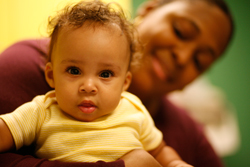Social Pediatrics

The Residency Program in Social Pediatrics is a three-year residency program leading to board eligibility in pediatrics. The residency is designed to train pediatricians with a special interest in advocacy, community and public health, health policy, and social justice. Since 1970, Social Pediatrics has been training physicians who are dedicated to practicing medicine in underserved, impoverished communities. In addition to clinical in-patient training alongside categorical pediatric residents at the Children's Hospital at Montefiore, social pediatrics residents have additional education in the biopsychosocial aspects of medical care and community advocacy. The Social Pediatrics residency program was the recipient of the 2004 Ambulatory Pediatric Association's award for outstanding teaching in a general pediatric program.
Training through a multidisciplinary core curriculum emphasizes:
- Child & Community Advocacy
- Community-based Research
- Health Systems & Policy
- Home Visitation
- Social Epidemiology
NOTE: Social Pediatrics is not listed separately in the Directory of Residency Training Programs, but it does have a separate matching number (listed under Montefiore programs match number 315332OMO).
Clinical Training Sites
The Children's Hospital at Montefiore (CHAM)
- Inpatient clinical training
- Emergency room experience
- Pediatric Subspecialty training
CHAM is a 105-bed non-profit institution, part of the University Hospital of the Albert Einstein College of Medicine. The Children's Hospital of Montefiore has been ranked one of the top children's hospitals in the nation by the prestigious U.S. News & World Report 2008 edition of America's Best Children's Hospitals.
Comprehensive Health Care Center (CHCC)
- Ambulatory education and experience
CHCC is a federally-funded community health center located on 161st street in the South Bronx, just a few blocks from the world-famous, Yankee Stadium. CHCC is located in the 16th congressional district-the poorest congressional district in the United States. The clinic serves more than 12,000 patients who make more than 71,000 visits annually and offers a variety of medical and ancillary services, such as medical, OB-GYN, dental, nutrition, health education, social work and WIC.
For more detailed information on the program, please visit us at the Albert Einstein College of Medicine.


